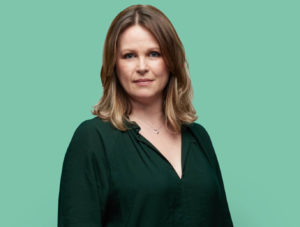What do you mean by resourcefulness?
Resourcefulness is a mindset that affects everything. It’s how we best make use of our physical resources for the sustainability of the planet, it’s how we maximise the value of our human resources by empowering our teams, and it’s how we get the best out of ourselves by doing more with what we have and seeing possibilities know body else can.
In the lives of our grandparents and great grandparents, resourcefulness was an essential part of their everyday existence as they had to make do with so little. Fortunately, few of us today will ever have to experience those levels of hardship and deprivation, but that isn’t to say resourcefulness is of any less value. Rather it should be used now as a means of opening the door to even greater accomplishment.
How resourceful are most companies and why is it such a valuable trait for successful leaders?
Entrepreneurs tend to be exhibit these traits on a daily basis as they have no choice but to think imaginatively about how to tackle problems with limited resources. However, it’s something that all organisations, no matter what size, need to embrace. Most companies are good at husbanding their physical and financial resources, but far fewer are effective at husbanding their human resources.
Resourcefulness among people not only saves money but also time. It’s about challenging the status quo and finding ways to work smarter. We call this lean thinking – constantly stripping out useless tasks. With the recession still lingering this resourcefulness is an essential skill for today’s leaders. It’s not merely about coping with less, but about achieving more than you ever thought you were capable of.
Does resourcefulness negate the need for rules and structure?
Absolutely not. There still needs to be clear framework of rules and management structure or things quickly fall apart. Even navy seals, some of the most highly trained and resourceful people on the planet, still have someone in charge. Wherever you have a group of people you need a clear structure of leadership, rules and systems. However, within that framework employees should be encouraged to act with a high degree of autonomy.
Is resourcefulness an innate trait or something that anyone can learn?
Anyone can learn to be resourceful. Like most things in life, it comes down to education. Many people in today’s world have never had to be truly resourceful, but with the right leadership, guidance and culture anyone can develop these qualities.
Presumably, however, some people are naturally more inclined to act with initiative and imagination? If so, how can you best identify these traits during the recruitment process?
Of course some people naturally exhibit these qualities more than others, yes, and filling your team with as many of these instinctively resourceful personalities should be one of your primary goals as a leader.
Do they have a history for seizing the initiative and getting things done?
There is no perfect formula for the recruitment process, but I would suggest that you get the person talking about projects they’ve worked on in the past so that you can understand how they have handled challenges. Are they someone that fixates on problems or do they instead focus on solutions? Do they sound like they would need a lot of direction or are they someone who has a history for seizing the initiative and getting things done?
Above all, do they have a brightness about them? Do they come across as optimistic and enthusiastic? Typically these are the people that have a natural inclination towards inner resourcefulness.
How do you build a culture of resourcefulness throughout the organisation?
The first thing is to adopt what I call the mantra of possibility – don’t let what you cannot do interfere with what you can do. Too often we focus on constraints rather than possibilities. You must then communicate a clear purpose to the team. People need to understand what the organisation does and why, and how their role fits into this broader mission.
You must trust that they are best placed to judge how to achieve their objectives.
The next step is to challenge people to think critically and challenge the status quo. It’s important that tasks and responsibilities within their role are defined in broad terms and not broken down into individual steps, as you must trust that they are best placed to judge how to best achieve their objectives.
When trying to find ways to improve efficiency it can be tempting to completely reinvent how you do business, but often it’s better to start with specific processes and procedures, and this requires the participation of your team. One exercise I find particularly effective is to ask everyone for two ideas of things that they believe the company can stop spending time and money doing. I then ask them for ideas for initiatives that could take their place. This team involvement not only helps to secure their buy-in, but also tends to lead to far smarter decisions being made than if management were to do it all on their behalf.
Finally, make sure you celebrate the wins. Whether small or large, displays of resourcefulness need to be recognised and rewarded.




